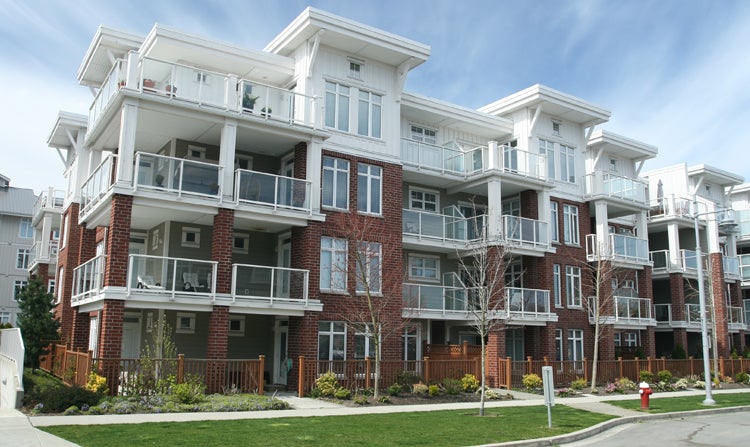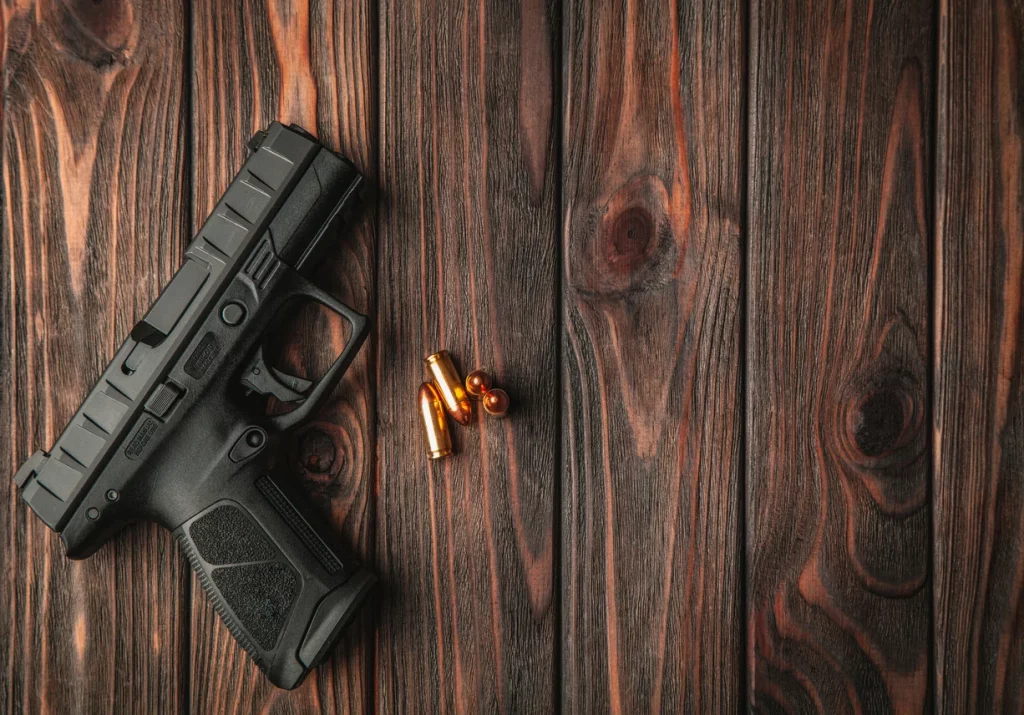Home defense is important, and keeping you and your loved ones safe means doing all the needed research to make sure you have the right firearms and the right ammo for the job. Having the firearm type or caliber can make all the difference in an emergency situation, but with all of the options out there, it can be a daunting task to try and figure it all out on your own.
We’re going to take a look at the best firearms for home defense, but we aren’t going to stop there. We’re going to cover the ideal weapons, caliber, and ammo types to keep on hand based on what type of residence you may be forced to fire your weapon in. We’ll also make sure we cover some general best practices for home defense.
Single Family Homes
Single-family homes generally offer more open spaces and fewer restrictions for bullet travel than residences with shared walls, like apartments or condos. This will affect your choices, but not as much as you might think. You still need to worry about overpenetration, just not as much. Here are our recommendations for single-family home defense:
- Shotgun: A shotgun will be a popular and wildly effective choice for home defense due to its incredible stopping power and overall versatility. The ideal matchup is generally going to be a 12ga loaded with double-ought buckshot or even slug rounds for unbeatable effectiveness.
- Handgun: Keeping one or more handguns nearby in case of emergency is always a good idea. They’re compact and easy to use in high-stress situations. The choice can be challenging since you want stopping power, but limited penetration. Ideally, you’ll be looking to keep a 9mm or a .45 on hand, which are fed with a hollow point, soft point, or even frangible rounds.
- Rifle: For large homes or defending land rifles will offer more accuracy than shotguns and handguns, as well as more power in many cases. The AR platform is famously capable in this capacity, so an AR-15 chambered in a .223 or 5.56mm round would be a formidable weapon. When combined with hollow point or soft point ammunition, it can provide solid protection with limited penetration liability.
Duplexes, Apartments, and Condos

Everyone has a right to home defense, no matter what type of residence they live in. While defending a single-family home may seem relatively straightforward, homes with shared walls can present some very unique challenges for effective and safe home defense.
There is a greatly elevated risk of over-penetration in shared-wall residences, and this is often overlooked. You aren’t just thinking about potentially penetrating into a neighbor’s home, but other rooms in your own home. This means you’ll also be looking at firearms with low recoil so that in addition to lower penetration, you have increased control and target acquisition capabilities. Here are what we feel would make ideal home defense weapons in a shared-wall residence:
- Shotgun: While highly effective in close quarters, shotguns are incredibly powerful and pose a risk of over-penetration no matter what loads are used. However, if it’s your only option, opt for light loads with small shots. You’ll still be a capable force in the home, but the drastically reduced kinetic energy of the small shot should cut down on penetrative ability considerably.
- Handgun: Handguns are one of the most popular choices for defending shared-wall residences because they’re small and have a reduced risk of penetration compared to other firearms. The ideal caliber would be a 9mm or a .38 special, loaded with hollow point ammo. This will reduce recoil while maintaining maximum effectiveness. Smaller pistols like the Ruger LCP or Smith & Wesson Bodyguard also have a much smaller profile and far less recoil than larger handguns, making them prime options for individuals that have challenges handling larger firearms safely.
General Home Defense Best Practices
In addition to choosing the right tool for the job, you’ll need to make sure you keep some best practices in mind. Here are a few:
- Practice firearm safety often
- Develop a plan for your home defense
- Train regularly and practice shooting from non-traditional positions and stances
- Secure your home well and implement smart tech
Wrapping Up
While it can feel like a bit of a task to figure out what the best firearm for your home defense is, it’s also an incredibly important decision that will determine your ability to keep your home and family safe in an emergency situation. By considering what you need and want of your firearm, as well as your specific living situation, you’ll be able to find the most effective gun and ammo combination for your needs. Additionally, keeping yourself and your skills as well-maintained as your firearm can go a long way toward a comprehensive & successful home defense strategy.
Written By: Brady Kirkpatrick



I don’t know what his basis is but most cases I’ve seen are based on imminent threat and someone at rifle distance as in “defending” land would not be an imminent threat.
Did you just say a Smith & Wesson Bodyguard has less recoil than larger guns? Tell me you’ve never shot a Bodyguard without telling me you’ve never shot a Bodyguard. That was horrible advice. SMH
Exactly what I was thinking! Worse recoil the smaller the handgun
“Secure your home well and implement smart tech”
Oxymoronic advise right there; “smart” is an ironic euphemism for “hackable”. “Smart” tech = not secure.
My first thought mirrored Jim’s comment exactly, except I was thinking about the Ruger. The most important point about that weapon, however, is actually the fact that it only holds 5 rounds of ammunition; 6 if you keep one in the chamber. The average home invasion involves 3-5 assailants, potentially requiring a full 15 rounds of ammunition. In my opinion a pocket pistol like the two you mention in this article is a poor choice for home defense. Choose a weapon that can respond to the threat with a minimum of 15 rounds of ammunition and keep an extra magazine or two nearby just in case.
Anyone who suggests a 12 gauge shotgun with buckshot or slugs as the ideal home defense weapon is obviously inexperienced in the use of firearms for home defense. Even #9 shot will horribly overpenetrate. My best friend negligently fired a 12 gauge shotgun with birdshot in our basement when we were 14. It blew through the metal vent duct, the floorboard/pad/carpet upstairs, the ceiling, and almost out the roof of the house. Overpenetration is just as bad as any other gun. Add in the brutal recoil that keeps people from practicing as often, the low round count, and comically long reload times and a shotgun is about the worst gun for home defense.
Liv Pure is a natural supplement. Liv pure helps to support and improve healthy liver functions. Liv pure